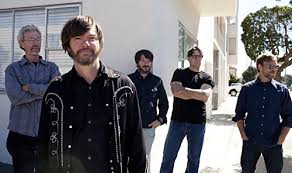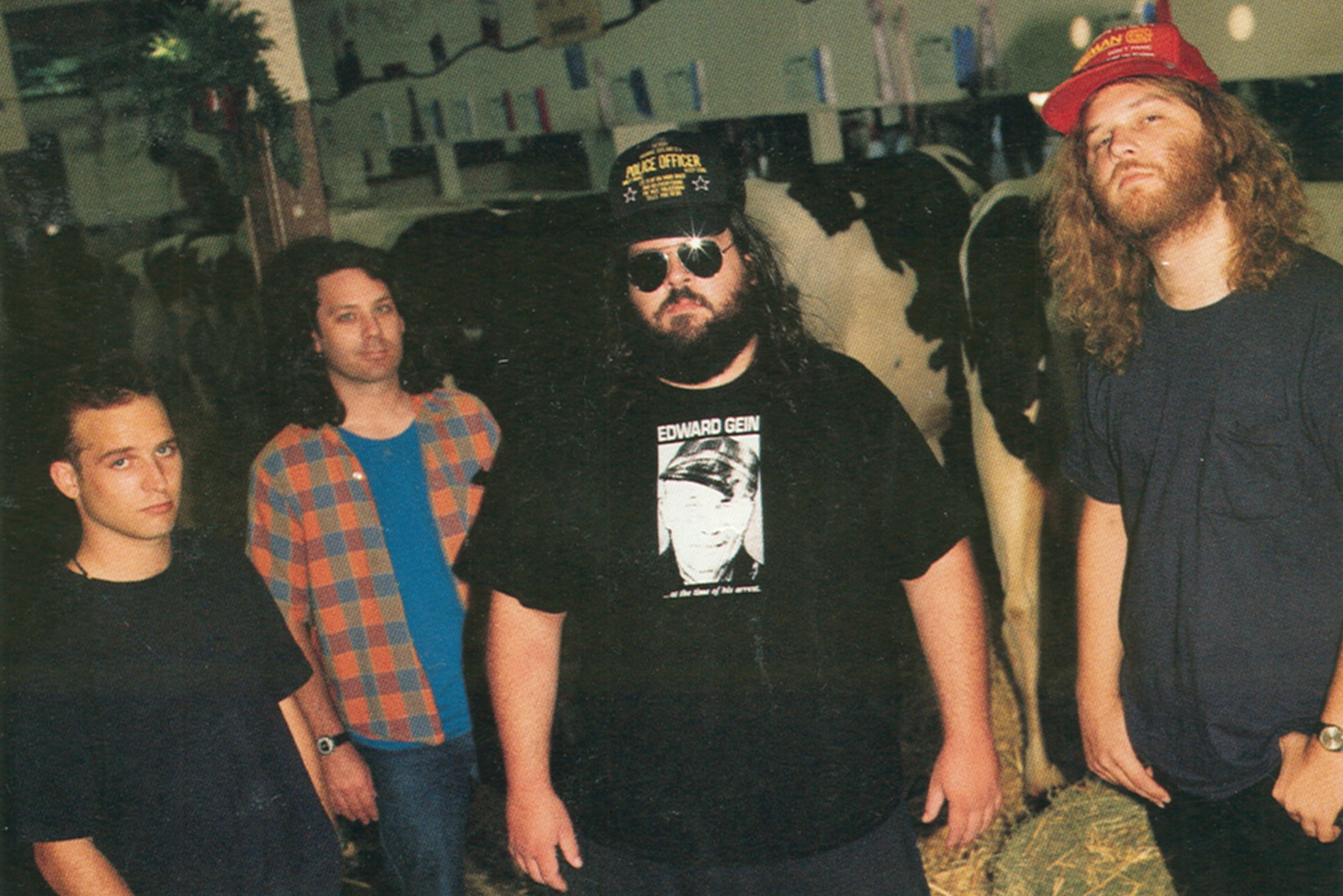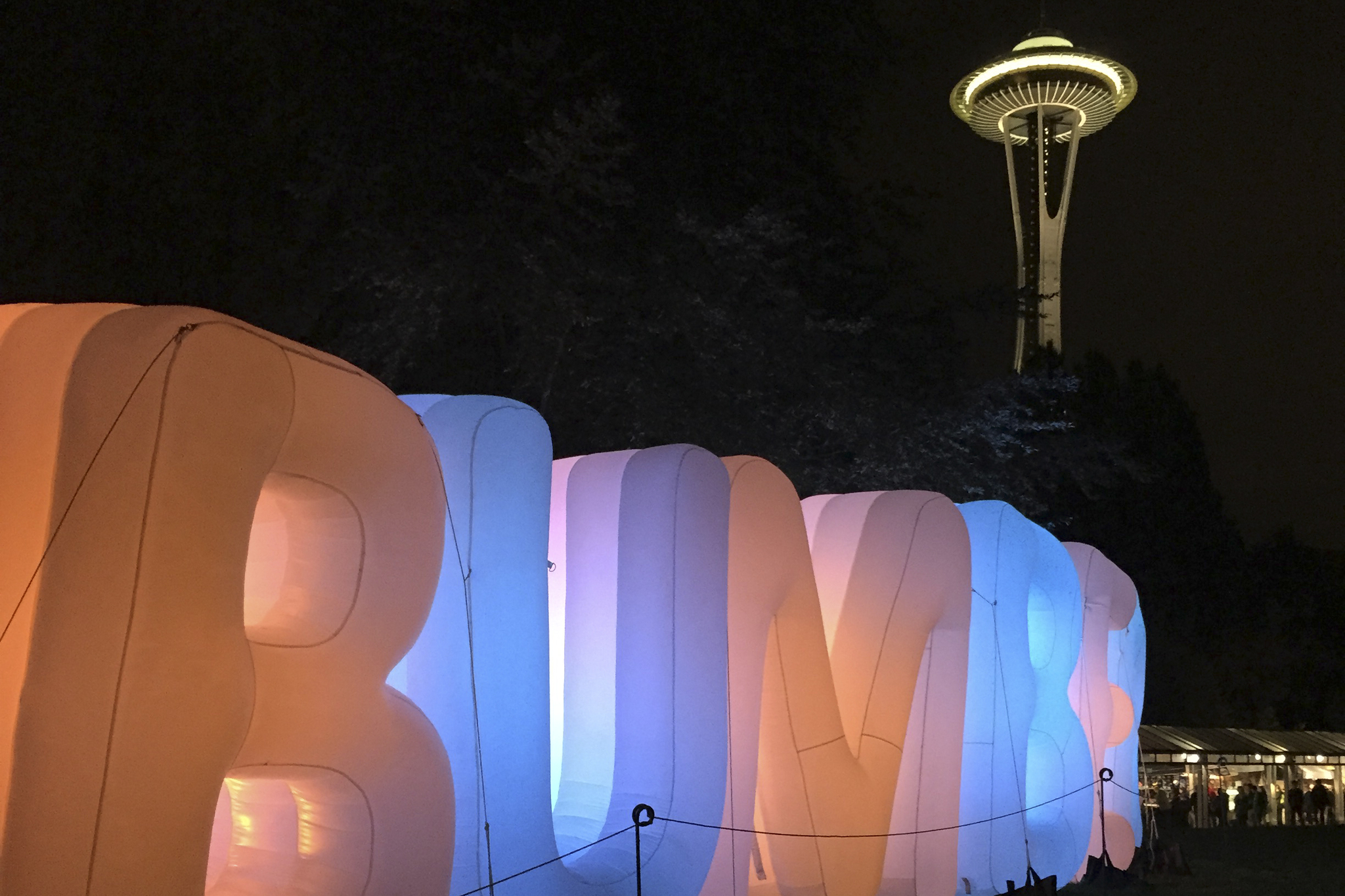Since the breakup of Uncle Tupelo some 20 years ago, Jeff Tweedy has gone on to explore rock music’s many facets music with Wilco while Jay Farrar has undergone a similar exploration of country music via Son Volt. Fueled by his interest in pedal steel guitar, Son Volt’s latest album, Honky Tonk, goes headlong into the Bakersfield Sound of the mid-1950s, pioneered by artists like Buck Owens and Merle Haggard. For the latest edition of Tell Me About That Album, we caught up with Farrar to talk about the record, pedal steel, and his occasional foray into prog rock.
The band plays the Neptune Theater, Wednesday, July 24th
.
Can you talk about the genesis of this idea, to craft a record inspired by the Bakersfield country sound? I look at it as kind of a continuum. I wanted to get back to the pedal steel and fiddle aesthetic that started on the first solo record, something that carried through learning the pedal steel guitar and playing around St. Louis with a band called Colonel Ford, which focuses on country music from the early 1960s. I became immersed in that music and when it came time to write songs it became second nature. I wanted to focus on some of the elements I was hearing in the music, like the twin fiddle sound of Ray Price and George Jones.
How deep was your knowledge of that stuff prior to playing with Colonel Ford and working on this record? I was aware of most of these guys since the early 1990s and I think the Son Volt record Trace really reflects that. As I was getting deeper and deeper into it I found that I really followed the pedal steel guitar playing of Ralph Mooney and that covered a pretty wide spectrum from Buck Owens to Wynn Stewart to Waylon Jennings.
How would you describe the difference between a pedal steel guitar and a standard guitar to a layman who might not be familiar with the instrument? Pedal steel you play with a slide on the right hand and there’s pedals that change the pitch. You can also come up with your own tunings. One of the things that I’ve found intriguing about country music from the 1950s is that there was this convergence of innovation in regard to the pedal steel guitar where guys were trying to outdo each other by adding more strings or using their own unique tunings. And you can have different pedal-to-string combinations. There was a conversion of the pedal steel but studio technology was continually improving too so guys were also trying out reverb and delay effects and there were really no inhibitions it seemed like during that time period in country music.
Press materials for the record say that most of the songs were written in a two week period, which seems exceptionally quick. Can you talk a bit about the process of writing the songs and whether you normally compose so quickly? The time period in which the songs were written was a bit shorter than normal. I kind of embraced the lexicon of the music of that time period and I think it just flowed easily because I was immersed in that music and following Ralph Mooney wherever he went.
Are you usually writing by yourself or working with the band? I usually work in solitude. Being on tour is usually a period of gathering ideas and little bits and fragments start to take shape. But I usually get into a woodshed situation where it’s just focusing and concentrating on getting songs written. I’ve found that it works better for me to focus on short bits of writing where I’m doing it everyday but not for 365 days a year.
Unlike some of your other recent records,
Honky Tonk
doesn’t have a lot of modernity to it. Have you lost interest in the electric guitar? I haven’t lost interest in playing electric guitar. Just yesterday I was trying to figure out what Jimmy Page was doing on “Kashmir.” I think it’s more of just a conscious decision to focus on one thing but I would expect to get back into it at some point.
Are there any contemporary artists that you think are particularly interesting? There are interesting things out there. Phosphorescent, I don’t know if I would categorize them with Led Zeppelin, but they’re doing interesting things.
Some pictures on your Facebook show you on stage with Kris Kristofferson recently and I wonder if there are any collaborations from your career that really stand out as being exceptional? The one you mentioned was a memorable experience for sure. He was such a warm, open person. It’s inspirational to see someone doing it as long as he’s been doing it and doing it well.
How did you find the process of putting together your autobiography,
Falling Cars and Junkyard Dogs
?
Is there any overlap with the process of writing music? With the book I just sort of fell into it. I had some time in between touring and I started focusing on experiences that would be unique to me and it sort of seemed like folk writing to me. It served as cognitive medicine, taking a look back which sort of helps where you’re at now and where you’re headed.
On this tour, are you hoping to take audiences back in time each night to what it might have being like in a roadside honky-tonk? We’re touring with Colonel Ford, which is the band I play pedal steel in in St. Louis…
Are you doing double duty? I’m not playing pedal steel because I have a different tuning but overall the experience of having Colonel Ford with us does set the tone, which is maybe somewhere representative of what it was like to be in a honky-tonk in the 1950s. At times we go off in different directions. There’s a segment of the show that’s closer to Yes than Merle Haggard. [Laughs.] It’s a short segment.
I don’t suspect there’s a huge overlap between fans of Yes and Merle Haggard but perhaps that’s the Sun Volt niche. We’re trying to find it.








